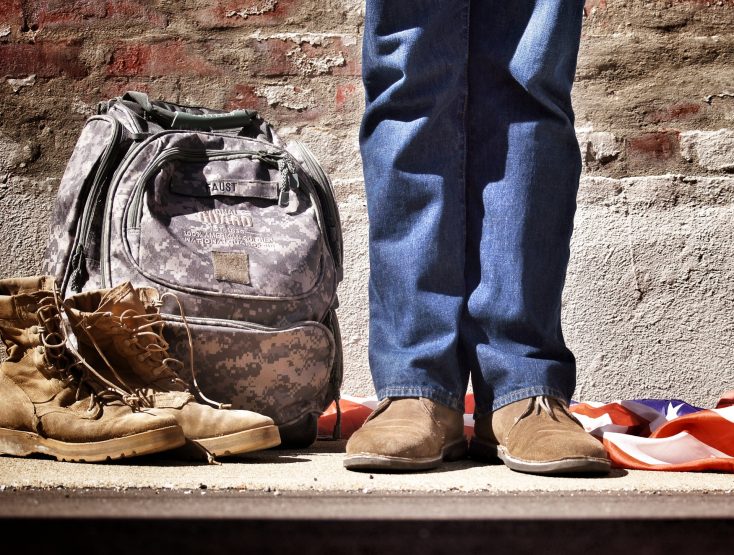
In honor of Veterans Day, we are re-posting a story with advice for veteran MBA applicants transitioning from the military to business school.
Some veterans don’t immediately see the correlation between their skills and experiences from the military and those needed to lead a Fortune 500 company. However, business schools admire the leadership skills, grit and mental agility veteran MBA applicants typically possess.
A Washington Post editorial by Harvard Business School Dean Nitin Nohria once argued that MBA programs should target more veterans. “Business school can be a pathway for integrating our service members back into civilian life, and for finding new ways to engage their intellect, integrity and leadership at home,” Nohria explained.
Are you planning to transition from active military service to business school? Then begin your research by finding out how each of the programs measures up in the following areas.
1. Explore culture and fit
Every applicant should consider whether the business schools that interest them are good fits as far as class size, teaching method, location and general culture are concerned. However, a good fit is even more important for veteran MBA applicants. Their background is quite different from most candidates, and going from active service to a classroom can be challenging. Having strong outlets of support from the school makes a world of difference.
Once on campus, find out how many students are in the MBA program. Veterans at top-tier business schools typically make up about 5 percent of each incoming class. Too few fellow service men and women may leave students wishing for more peers they can relate to.
Find out what kinds of special programs for veterans exist. Does the business school have student clubs or organizations created specifically for veterans? Also, find out whether it offers personalized academic and career support to help veterans translate their military skills into civilian life.
Reach out to current students for their honest feedback about daily life in the program. Listen for details that go beyond what you discover on the school website or by chatting with admissions officers.
2. Consider recruiting efforts and admissions guidance
Another sign of a military-friendly school is whether it hosts MBA admissions events or offers targeted application advice for veterans. Even if the school doesn’t host an admissions event specifically for military applicants, you can still get a fair assessment of how eager the program is to recruit veterans by looking at whether it provides support services starting during the application phase – not only once you’re admitted.
Examples include the Veteran’s Visit Day event at MIT Sloan School of Management. Also, check out the admissions FAQs provided by the Tuck Veterans Club at Tuck School of Business. Or take advantage of the application and mentorship provided by Wharton’s Veterans Club at the University of Pennsylvania’s Wharton School.
Finally, find out if the school offers deferment flexibility to candidates whose needs may change at the last minute if still on active duty.
3. Look into financial aid
The high cost of business school often deters veteran applicants. Many already have families of their own, and the concern over lost wages while they study cannot be overstated.
However, many financial incentives exist specifically for this group. Your actual out-of-pocket expense goes down dramatically once you factor in Veterans Affairs benefits, dedicated veterans scholarships, waived application fees and the Yellow Ribbon Program.
Under this program, the federal government matches, dollar for dollar, any financial aid that participating schools commit, essentially providing eligible student veterans with free or reduced-cost tuition. It’s designed to make out-of-state public colleges, private institutions and graduate programs more affordable for veterans.
Schools offer varying levels of support under the Yellow Ribbon Program. Visit the U.S. Department of Veterans Affairs website to learn whether the business school has limits on the number of recipients eligible annually – some are unlimited – and to see the exact dollar amount of the maximum school contribution per student, per year.
4. Check out this book for veteran MBA applicants
Veteran applicants need advice targeted toward their specific needs and strengths. Earlier this year, Matthew Cowsert, a U.S. Army veteran and MBA graduate from NYU Stern School of Business, published a book called What’s Next? A Military Veteran’s Guide to Maximizing Your MBA.
Cowsert believes this book will help military veterans naturally differentiate themselves from other MBA applicants in order to gain acceptance to their target program and land their dream job.
Applicants from the military should know that business school admissions teams highly value their experience, so if that’s your background, make sure your applications highlight those powerful and unique qualities.
A version of this post originally appeared on Stacy’s “Strictly Business” MBA Blog on U.S.News.com
The post 4 Research Tips for Veteran MBA Applicants appeared first on Stacy Blackman Consulting - MBA Admissions Consulting.
